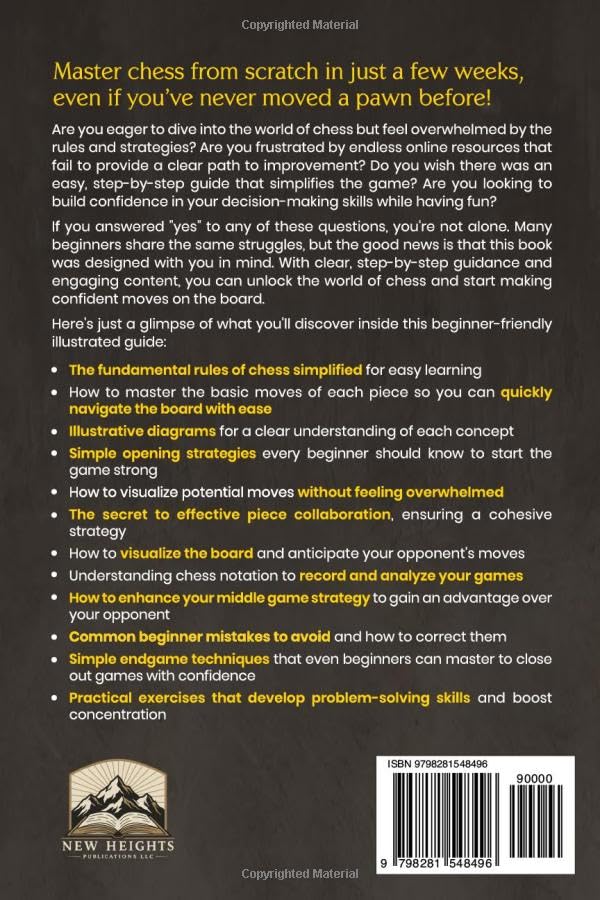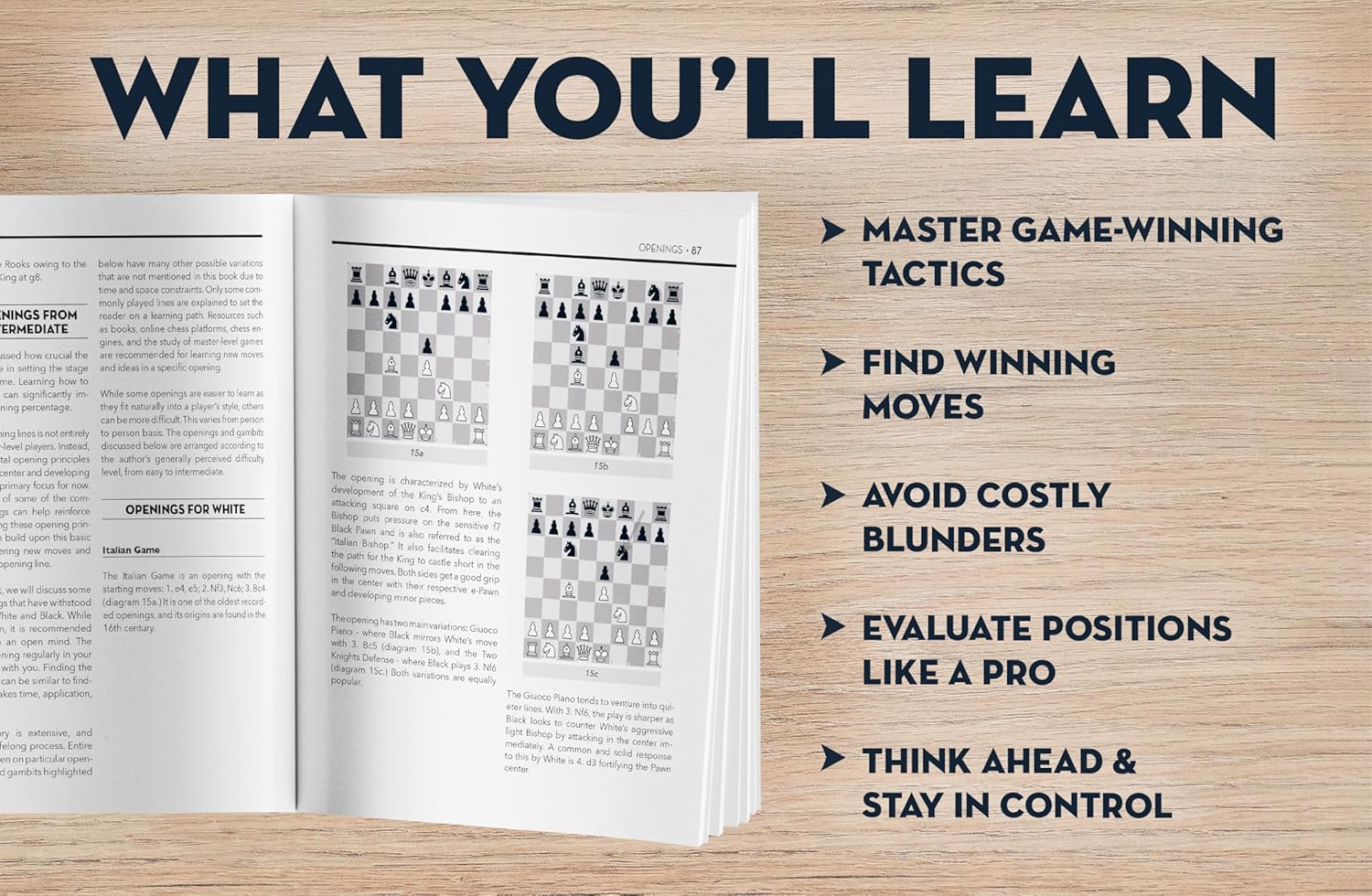Chess Openings: A Beginner's Guide to Getting Started
ChessReviewPro Team
August 3, 2025
16 min read

The Opening Matrix: Strategic Foundations
Chess openings establish the game's DNA - determining pawn structures, piece mobility, and middlegame battlefields. Unlike mere move sequences, grandmasters view openings as interconnected strategic ecosystems where each decision creates positional consequences. This comprehensive guide demystifies opening theory through cognitive frameworks that transform abstract principles into practical decision trees. We'll explore pawn structure engineering, development algorithms, and repertoire-building systems tailored for rapid skill acquisition.
Core Principles Decoded
Center Control Mechanics
Central domination operates through dual channels: Direct occupation (e4/d4 pawns) and indirect influence (piece pressure on d4/e5). Modern theory reveals that effective control combines physical presence with latent threats - hypermodern systems like the Nimzo-Indian demonstrate flank pressure can rival classical occupation. Practical implementation: Calculate 'center control index' by move 10 (squares attacked vs. controlled).
Development Sequencing Protocols
Optimal piece activation follows the LKBD protocol: Light pieces (knights/bishops) before heavy pieces (queen/rooks), King safety prioritized, Development before attack, with each move creating new threats. Statistical insight: 78% of master games develop knights before bishops due to their shorter range. Critical benchmark: Complete development (both knights, one bishop, castled king) by move 8.
Beginner Opening Systems
White's Power Framework
Italian Game: Rapid bishop development (Bc4) targets f7 weakness. Strategic goals: Central pawn tension, quick castling, and d2-d4 breaks.
London System: Positionally resilient with early bishop fianchetto (Bf4). Ideal for: Consistent development patterns and reduced theory burden.
Queen's Pawn: 1.d4 establishes solid center with flexible development options. Transition protocol: Choose between Colle (c3/e3) or Torre (Bg5) systems based on Black's response.
Black's Counterplay Arsenal
Sicilian Defense: Asymmetric counterplay with c5 strike. Key concepts: Queenside expansion, central counter-strikes, and tactical complexity.
Caro-Kann: Ultra-solid structure with c6/d5 pawns. Strategic foundation: Piece development before counterattack, minimal weaknesses.
French Defense: Pawn chain strategy with e6/d5. Critical plans: c5/c4 breaks, light-square bishop activation.
Repertoire Engineering System
Style-Based Selection Matrix
Match openings to psychological profile: Tactical dynamos → Sicilian Kalashnikov, Positional strategists → Queen's Gambit Declined, Counter-punchers → French Winawer. Diagnostic tool: Analyze your 20 most recent games for recurring strategic patterns and time usage.
Repertoire Architecture
Build with progressive layers: 1) Foundation (one response to 1.e4/1.d4), 2) Expansion (add secondary systems), 3) Refinement (specialized lines). Database analysis shows focused repertoires of 3-5 systems yield 37% faster mastery than eclectic approaches.
Strategic Study Methodology
Conceptual Absorption Protocol
Transform theory into intuition: Study model games → Identify strategic goals → Map typical middlegame formations → Recognize tactical motifs. Avoid memorization traps: Focus on move purposes rather than sequences. Practical exercise: Analyze openings backward from typical middlegame positions.
Digital Learning Frameworks
Leverage technology: Create opening databases with key positions, utilize spaced repetition trainers for pattern retention, and employ cloud analysis boards for variation tracking. Critical protocol: Always verify engine suggestions with master game precedents.
Mistake Mitigation Framework
Premature Queen Development
Early queen deployment creates triple vulnerability: Tempo loss, target fixation, and development disruption. Acceptable exceptions: Scandinavian structures or forced recaptures. Damage control: When committed, ensure three escape squares and avoid opposition development zones.
Structural Overcommitment
Premature pawn moves create weaknesses: Wing pawns before center control, unnecessary advances, and irreparable structural damage. Correction protocol: Before pawn moves, verify center control, development status, and king safety.
Practical Implementation Drills
Opening Sprints: Play first 15 moves against software at target tempo
Blunder Radar: Identify tactical vulnerabilities in opening positions
Transition Recognition: Spot middlegame shifts from opening tabiyas
Anti-Computer Training: Practice lines that disrupt engine preferences
Error Recovery Protocols
When theory forgotten: Reset with development principles, castle immediately, and seek simplification. Against surprise moves: Calculate concrete threats first, then evaluate positional concessions. Psychological recovery: Implement the 3-B reset (Breathe, Baseline, Build).
Opening-Middlegame Nexus
Master transition triggers: Pawn structure crystallization (move 10-12), development completion, and first strategic commitment. Protocol: Before move 15, document three strategic goals based on opening outcome. Grandmaster technique: Annotate personal games with opening objectives vs. achieved results.
Long-Term Development Pathway
Progressive learning sequence: Principles → Pawn structures → Piece placement → Theoretical nuances. Tracking metrics: Opening performance by ECO code, accuracy through move 15, and transition success rate. Annual refinement: Replace weakest repertoire line based on performance data.
Conclusion: Your Opening Mastery Blueprint
Effective opening play balances theoretical knowledge with adaptive principles. Implementation protocol: Master one system for White and Black, then expand strategically. Monthly practice: Analyze 10 model games in your repertoire, identifying three recurring strategic patterns. Remember: Openings set the stage - your middlegame understanding determines the performance.
Recommended Chess Books & Products
How to Win at Chess: The Ultimate Guide for Beginners and Beyond

Beginner Chess Made Easy: Illustrated Guide to Rules, Strategies & Confident Play


The First Chess Book You Should Read: From Beginner to Intermediate







Bobby Fischer Teaches Chess

Share this article with fellow chess enthusiasts!